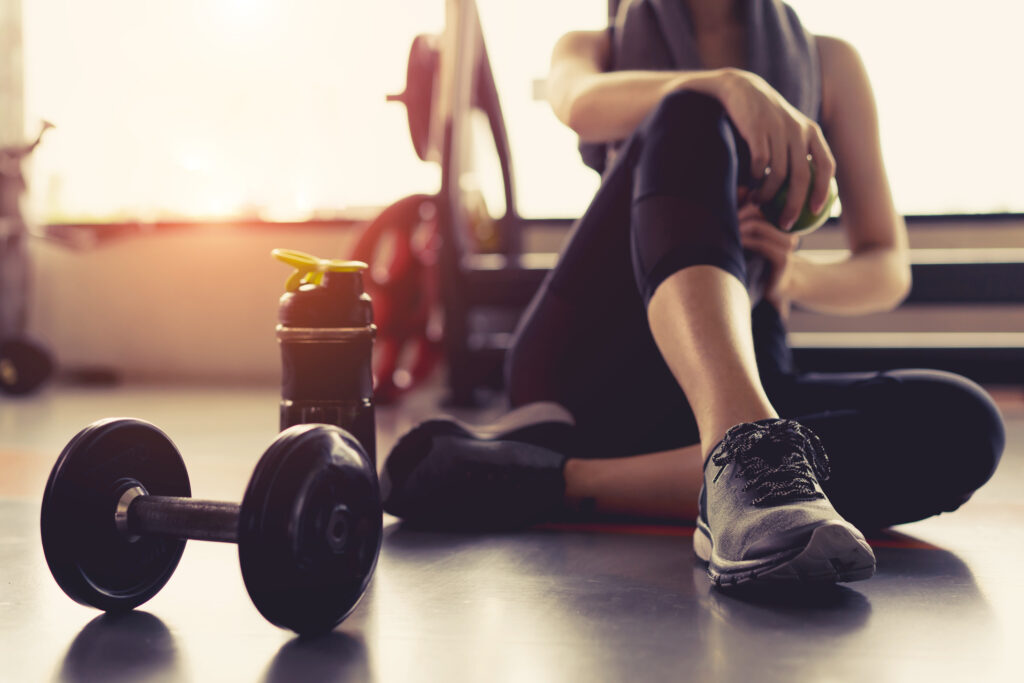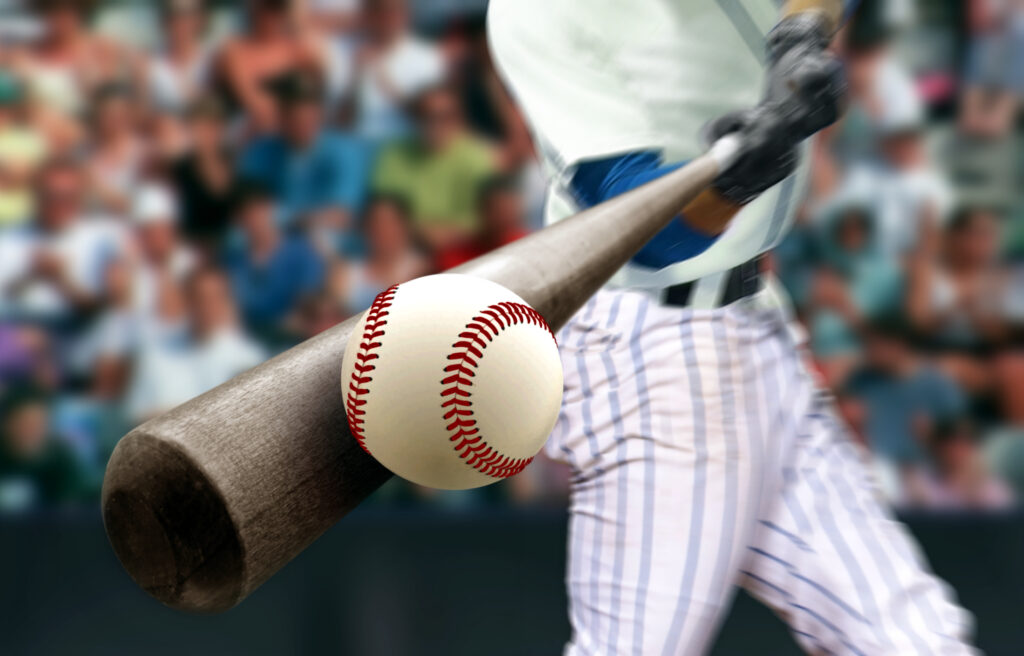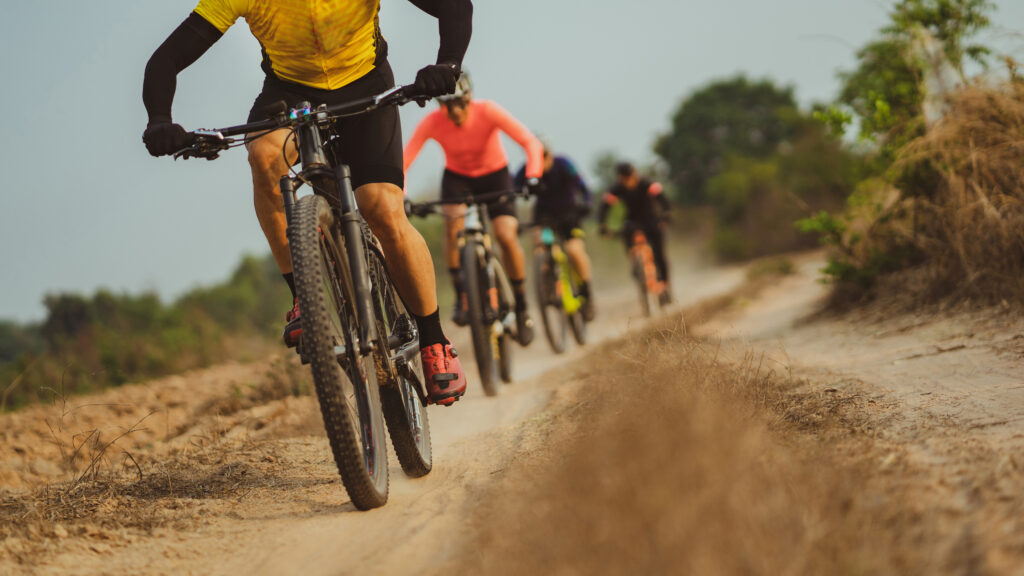
For some athletes, pain is simply part of the game. Muscle soreness, joint pain, and even the occasional torn ligament all come with the territory of playing sports. The problem is, many athletes simply have to “suck it up” and run right back out onto the field or court, hardly giving themselves a chance to recover properly.
Repeat injuries that never get a chance to heal are the perfect storm for chronic pain. But chronic pain isn’t something you should have to live with as an athlete.
Fortunately, natural remedies such as CBD can help ease the pain so it doesn’t throw off your game.
CBD and Muscle Recovery
It’s no secret that playing sports can lead to muscle soreness and injury. But training before a big game as an athlete can also lead to inflammation and damage to your muscles. This is especially true if you don’t have proper time to recover between workouts.
Now, it’s important to note that muscle damage is an inherent part of working out. Your body builds muscle by repairing the damaged tissue after strength training. The damaged tissue also comes back thicker, resulting in muscle growth.
But recovery is just as crucial as getting your reps in. Not allowing your body to undergo proper muscle cell regeneration can inhibit your ability to put on muscle mass.
So — where does CBD come into the picture in terms of muscle recovery?
In a small-scale study, researchers assessed the effects of CBD after performing intensive resistance training. For context, resistance training is your typical form of strength training — think free weights, resistance bands, weight machines, etc…
Sixteen healthy participants with at least one year of strength training received CBD or a placebo 24, 48, and 72 hours after intensive resistance training. The researchers measured their creatine kinase and myoglobin levels at each of the aforementioned intervals to measure the effects of CBD on muscle recovery.
Creatine kinase is an enzyme found in your skeletal muscles, heart muscles, and brain. This enzyme leaks into your bloodstream when your muscles have been damaged. Likewise, myoglobin is a protein found in your skeletal muscles that supplies them with oxygen. Myoglobin also leaks into your bloodstream if your muscles have been damaged.
The study didn’t find immediate effects on these biomarkers as the athletes took CBD for post-workout recovery at the 24 or 48 hour intervals. However, small and significant changes were observed at 72 hours.
Thus, it could be possible that CBD has a more substantial effect on muscle recovery after using it multiple times during the post-workout phase. The study authors also hypothesize that CBD may have more potent effects if taken as a pre-workout supplement, as the maximum absorption can take one to four hours.
The Benefits of CBD For Athletes

Beyond muscle recovery, CBD has several other properties that may benefit your post-workout or post-game recovery.
- Analgesic: CBD has analgesic properties, which is another way of saying it’s pain-relieving. This includes potential relief from joint, muscle, nerve, and/or inflammatory pain.
- Anti-inflammatory: CBD’s anti-inflammatory properties may help reduce swelling and pain after a sports-related injury.
- Anxiolytic: CBD has anxiolytic properties, meaning it can help reduce stress and anxiety before a big game.
- Hypnogenic: Higher doses of CBD have sleep-promoting properties, which could help you get the rest and recovery you need before hitting the field the next day.
- Neuroprotective: Although clinical trials are still needed, some experts say CBD may aid in recovery from concussions/mild traumatic brain injury.
Is CBD Illegal in Sports
CBD was removed as a prohibited substance by the World Anti-Doping Agency in 2018. It was later removed as a prohibited substance by the United States Anti-Doping Agency in 2019.
However, all other cannabinoids — including other non-psychoactive cannabinoids — are still prohibited by both agencies.
With that being said, you can still test positive for cannabis if you use full-spectrum CBD products. Full-spectrum CBD products can contain up to 0.3% THC, which may be an issue if your sports team or league drug tests for cannabis.
How to Choose the Right CBD Product and Dose
From topicals to tinctures, there is a large array of products available. But which makes the most sense when it comes to CBD for athletes?
Gummies, flower, vape cartridges, and edibles have full-body effects, meaning these products make the most sense for athletes seeking widespread pain relief, stress relief, or a sleep aid.
However, topicals are also great for alleviating localized joint, muscle, and nerve pain.
Just make sure the products you’re purchasing are broad-spectrum or CBD isolate to prevent a false positive from occurring on a marijuana drug test.
When it comes to dosing, start slow and work your way up to taking more CBD as needed. You can start with 20mg, and if you aren’t experiencing your desired effects, try 50mg or 100mg.
Some also recommend dosing CBD based on your body weight. For example, the prescription CBD isolate Epidiolex® (which is used for epilepsy) recommends starting with 2.5mg/kg of body weight. That means someone who is 68kg (150lbs) would start with 170mg of CBD.
Key Takeaways: CBD May Help with Athletic Recovery

Recovery is just as important as getting your reps in or practicing your sport. However, many athletes don’t have time to rest between training sessions and sports games. Unfortunately, this is the perfect storm for muscle injury and damage.
While further larger-scale studies on CBD and muscle recovery are needed, one small-scale study suggests that CBD may benefit muscle recovery after taking it during your post-workout routine several times.
Additionally, CBD has analgesic, anti-inflammatory, anxiolytic, hypnogenic, and neuroprotective properties that may aid in your recovery even further.
Fortunately, CBD was removed from the WADA and USADA prohibited substances lists within the last several years. Yet, THC and other cannabinoids still remain illicit to both agencies. The rules regarding CBD may also vary depending on your sports team or league.
Thus, it’s important to stick with broad-spectrum or isolate CBD products to ensure you’re still within your rights as an athlete.
References
- Isenmann, E., Veit, S., Starke, L., Flenker, U., & Diel, P. (2021). Effects of Cannabidiol Supplementation on Skeletal Muscle Regeneration after Intensive Resistance Training. Nutrients, 13(9), 3028. https://doi.org/10.3390/nu13093028
- Think About Cannabis. (2022, April 4). The Science & Mystery Behind CBD. https://thinkaboutcannabis.com/cannabis-science/the-science-mystery-behind-cbd
- Think About Cannabis. (2022, April 4). How can CBD help with Sleep? https://thinkaboutcannabis.com/health-wellness/how-can-cbd-help-with-sleep
- Singh, J., & Neary, J. P. (2020). Neuroprotection Following Concussion: The Potential Role for Cannabidiol. Canadian Journal of Neurological Sciences / Journal Canadien Des Sciences Neurologiques, 47(3), 289–300. https://doi.org/10.1017/cjn.2020.23
- Horwath, H. (2019, December 30). 2018 Prohibited List: Summary of Major Changes | USADA. U.S. Anti-Doping Agency (USADA). https://www.usada.org/spirit-of-sport/education/2018-prohibited-list-summary-of-major-changes/
- Infront, G. (2022, April 27). Marijuana FAQ. U.S. Anti-Doping Agency (USADA). https://www.usada.org/athletes/substances/marijuana-faq/
- Dahlgren, M. K., Sagar, K. A., Lambros, A. M., Smith, R. T., & Gruber, S. A. (2021). Urinary Tetrahydrocannabinol After 4 Weeks of a Full-Spectrum, High-Cannabidiol Treatment in an Open-label Clinical Trial. JAMA Psychiatry, 78(3), 335. https://doi.org/10.1001/jamapsychiatry.2020.3567
- Think About Cannabis. (2022, April 4). Understanding the Difference Between Full, Broad, and Isolate CBD Products: Which One Makes Sense for You? https://thinkaboutcannabis.com/cannabis-science/understanding-the-difference-between-full-broad-and-isolate-cbd-products-which-one-makes-sense-for-you
- Greenwich Biosciences, Inc. (n.d.). EPIDIOLEX® (cannabidiol). EPIDIOLEXhcp.Com. https://www.epidiolexhcp.com/dosing-and-calculator